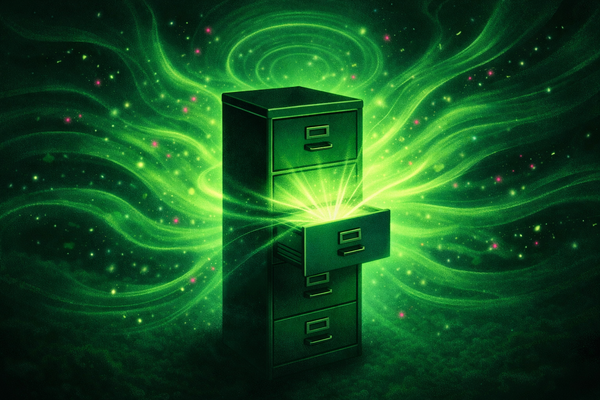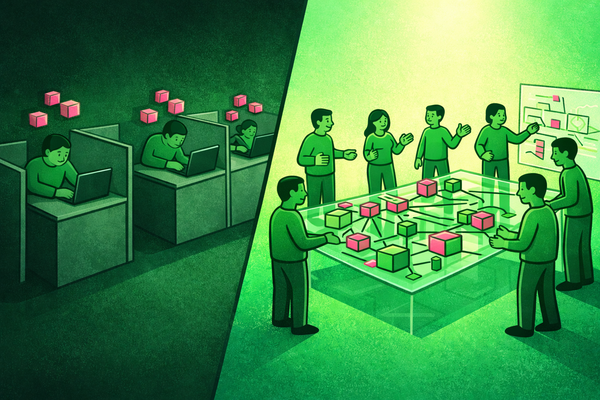5 Things You Should Know in AI This Week — October 31, 2025
Simplifying the noise. Here are five signals that matter for non-technical workers.
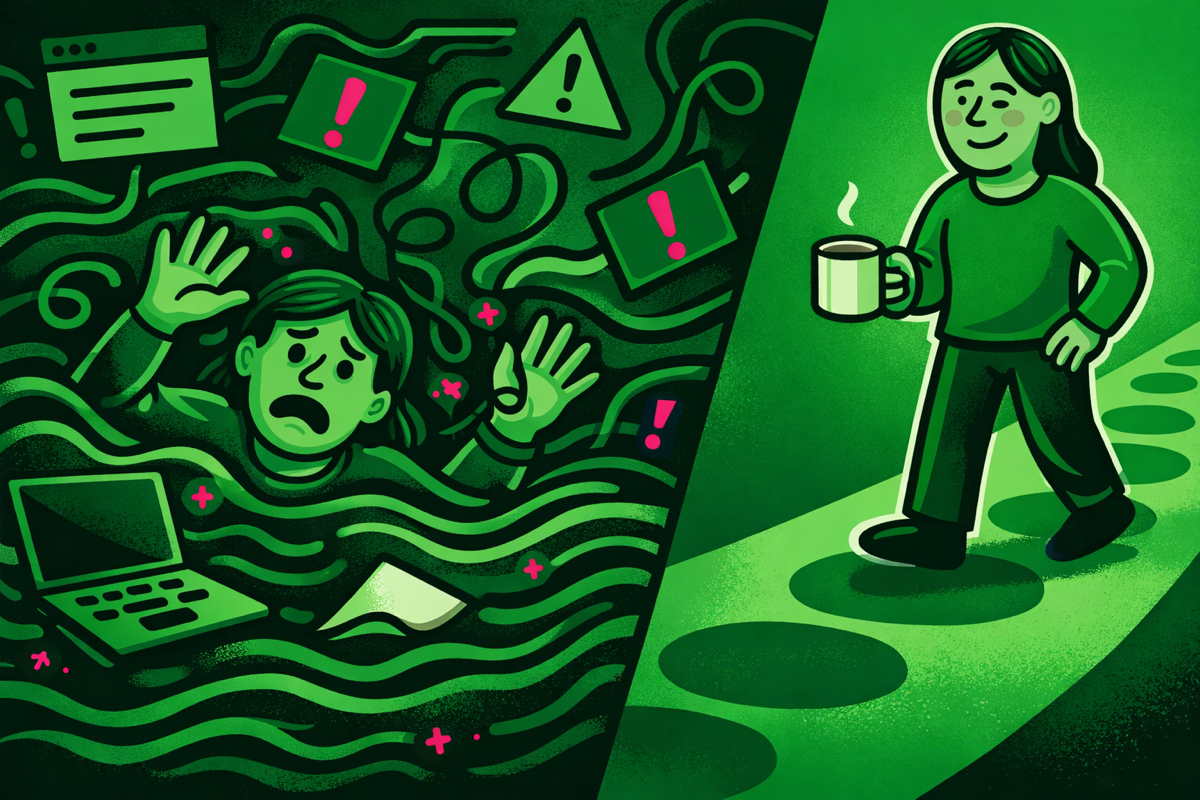
1. Elon Launches Grokipedia to Challenge Wikipedia
xAI launched Grokipedia this week.
An AI-powered encyclopedia positioned as a rival to Wikipedia.
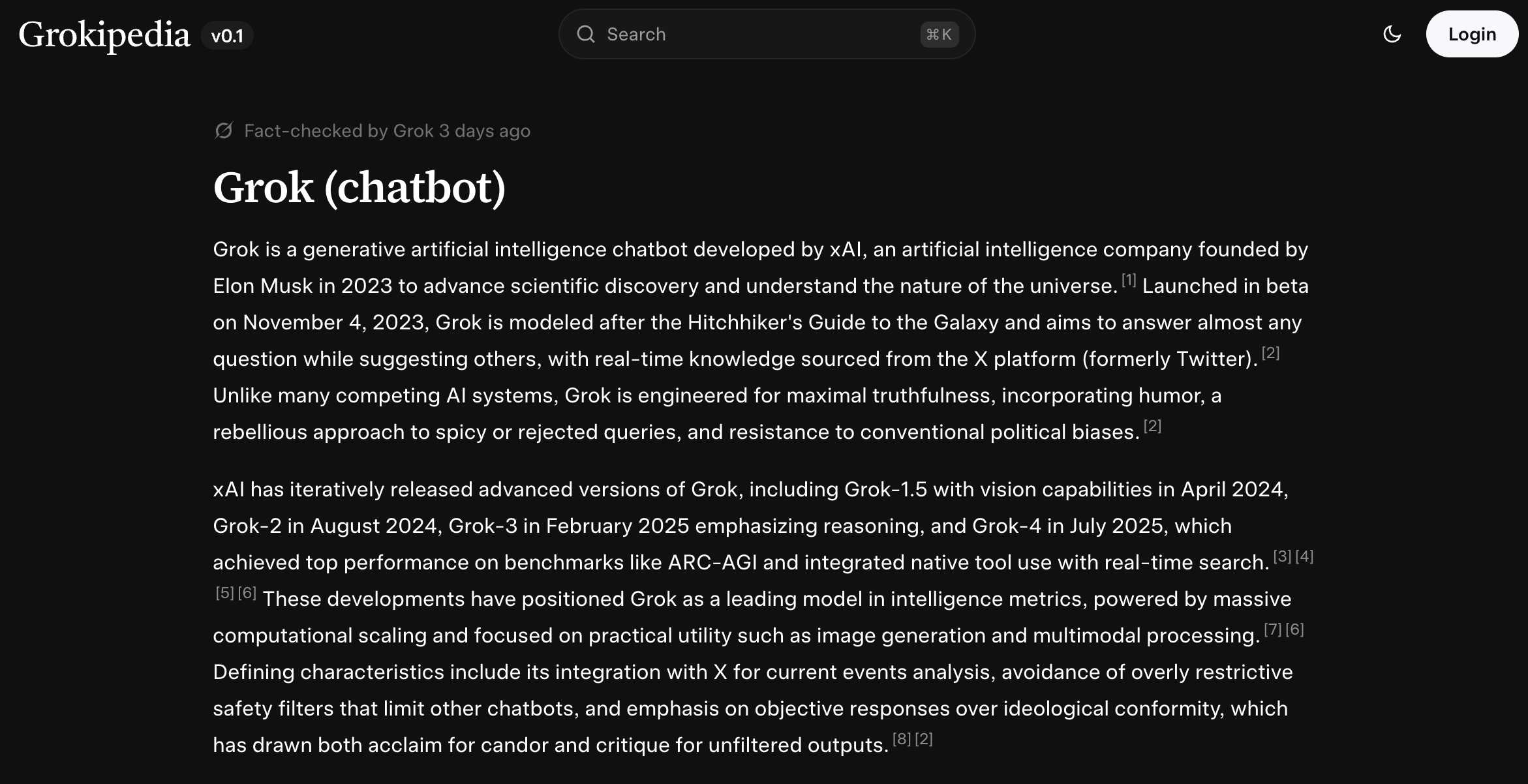
It was created entirely with content generated by xAI's Grok model.
And launched with 900,000 articles.
That's a big deal.
AI spun up a rival to Wikipedia at launch.
There are some safety concerns though.
Early reviews show the platform has limited editorial controls and some entries contain factual issues.
It does allow you to see page updates, but it's a WIP.
The signal? This is the first AI-created encyclopedia designed to learn, fact-check, and update by itself.
AI can create entire knowledge systems.
Speed is what sets it apart.
Instead of waiting years for human development, it was created in weeks.
Grokipedia's challenge will be accuracy and trust over time.
2. ChatGPT's Memory Gets an Upgrade
OpenAI rolled out a major update to ChatGPT memory.
Saved memories are now managed and prioritized automatically.
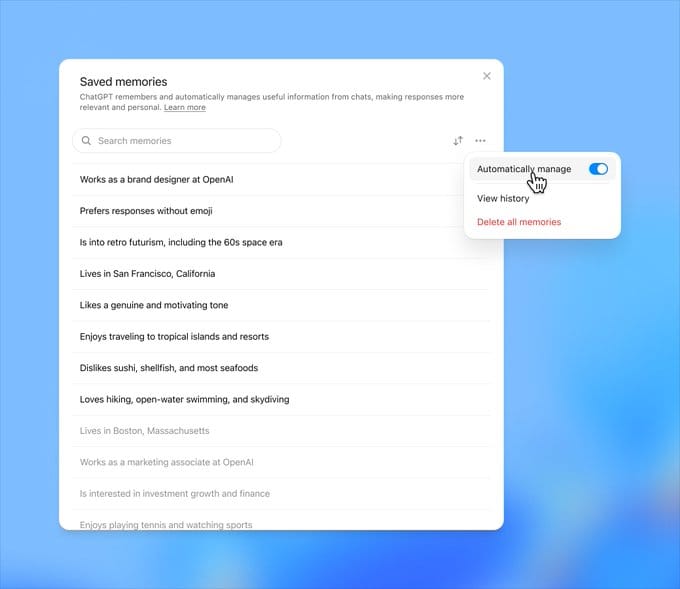
No more "memory full" alerts.
If you've been using ChatGPT for any amount of time, you've probably hit that wall.
You can search, sort, and reprioritize stored memories in settings.
The big win?
The system also deprioritizes or forgets less relevant information on its own.
It's less likely to store random info from old chats that skew your results.
It'll help you clean out the stuff that doesn't matter automatically now.
The signal? Memory has been one of the things that sets ChatGPT apart.
But as AI advances, memory can become a hindrance.
It can mess with results by overweighting topics and leaving others out.
Updates to memory that store only what's truly important are a win for users.
Expect memory to be a huge battleground for AI orgs next year.
For ChatGPT users, this is something to get excited about.
Check your memory settings and see what's prioritized.
3. Paypal & OpenAI Are Partnering for In-Chat Payments
Starting in 2026, ChatGPT users can buy stuff in chat with their PayPal account.
This is a big move because of PayPal's relationships.
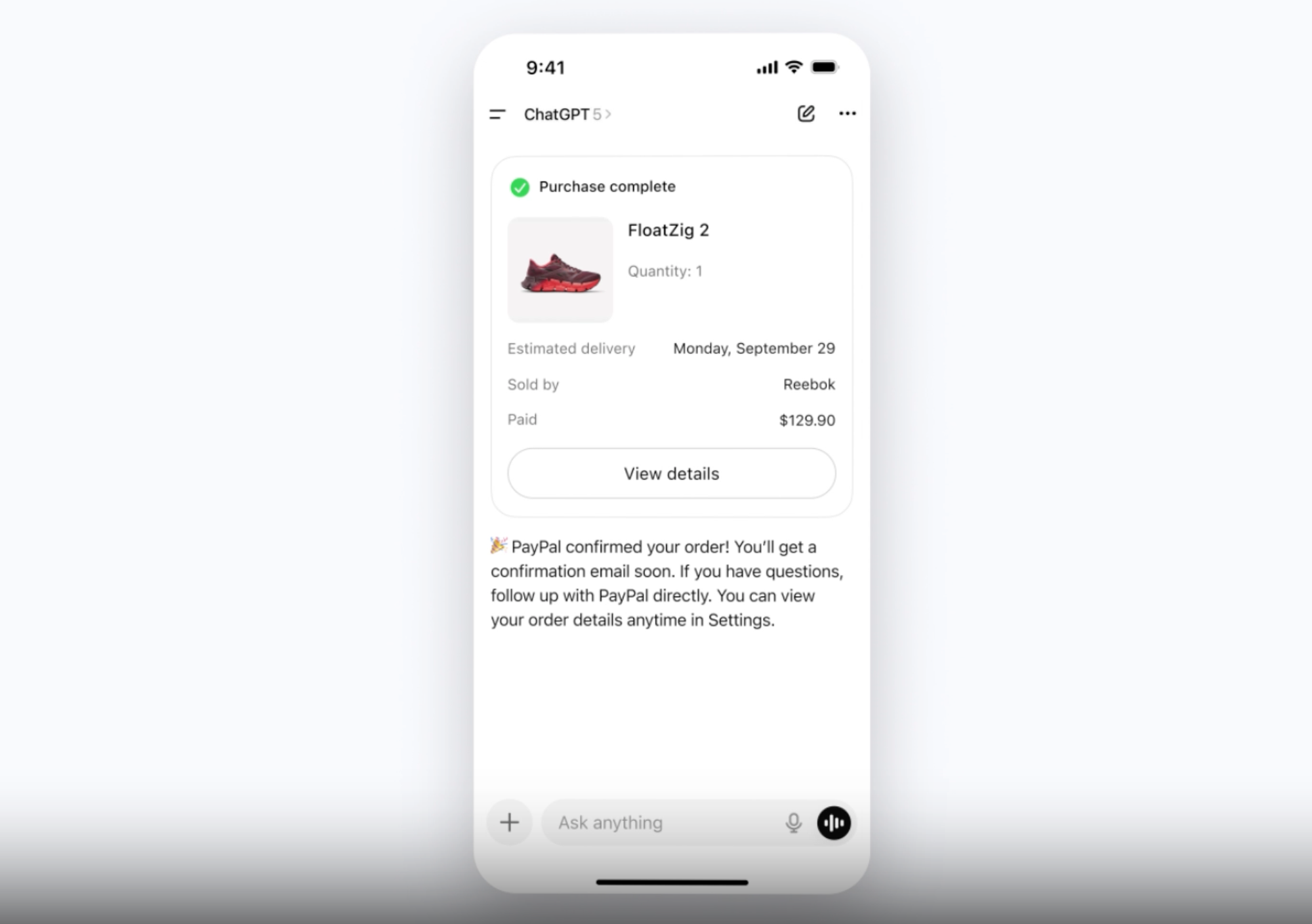
We've been talking about AI integrating transactions for a while now.
But the buying opportunities have been limited so far.
This partnership will make AI purchases a reality next year.
The signal? A reminder if you're at a big org to have conversations now.
Make sure you're setting things up to be in these experiences.
Show up here early and you'll have an advantage.
4. Claude Launches An Excel Plugin
Anthropic launched a Claude plugin for Microsoft Excel.
It's now in beta.
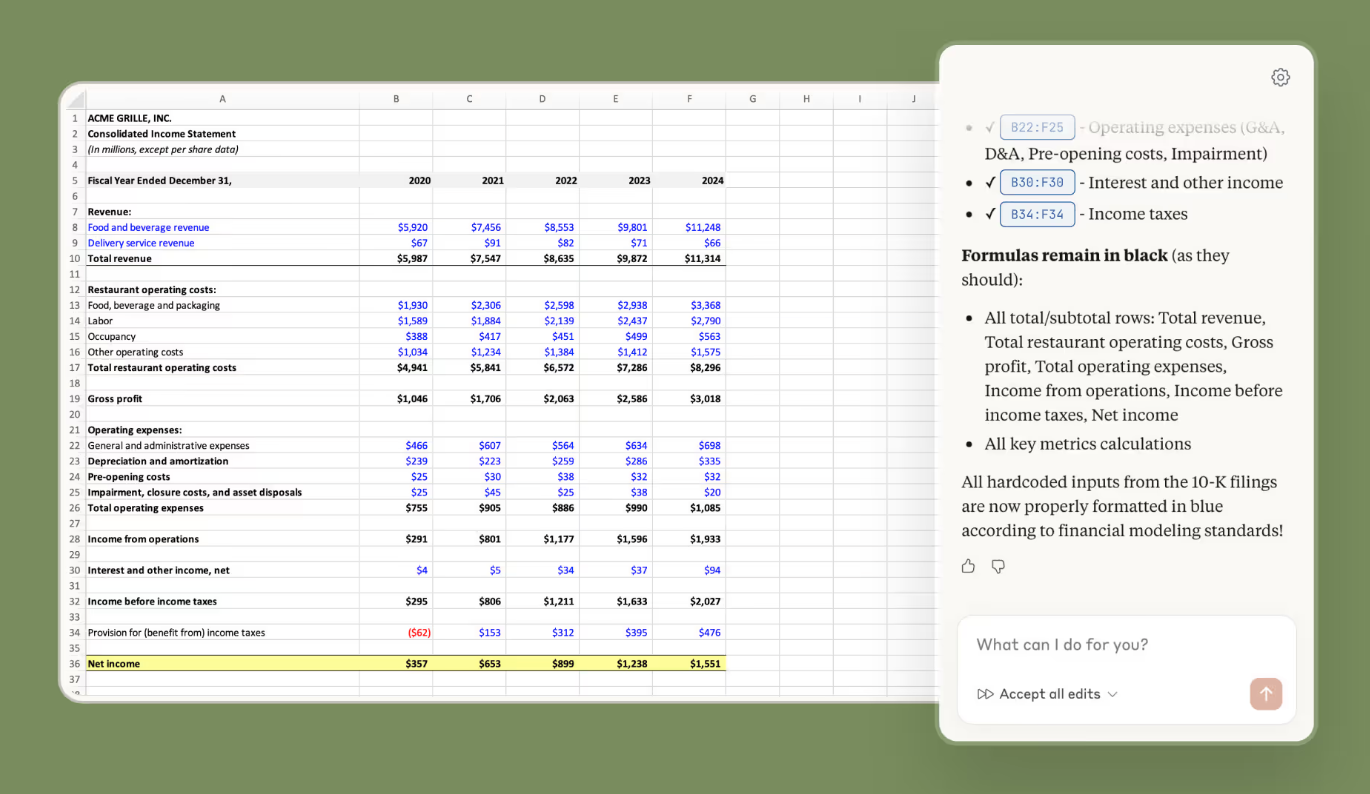
Prompt Claude for help with financial modeling, analysis, and office automation.
To use it, install the GPT for Excel Word add-in from Microsoft AppSource.
Open the plugin, choose the Claude model from the dropdown, and interact using the sidebar.
Claude has been one of the top models at technical tasks.
So this is a win if you're an Excel user.
It's currently available to Claude Max, Enterprise, and Team users.
The signal? This continues the trend of bringing top models to the tools you already use.
If you do a lot of analysis, this could be something to check out.
5. Create Ads in Minutes with Google's Pomelli
Google just launched Pomelli to create marketing assets.
It's currently an experiment, but better than a lot of AI marketing stuff I've seen.
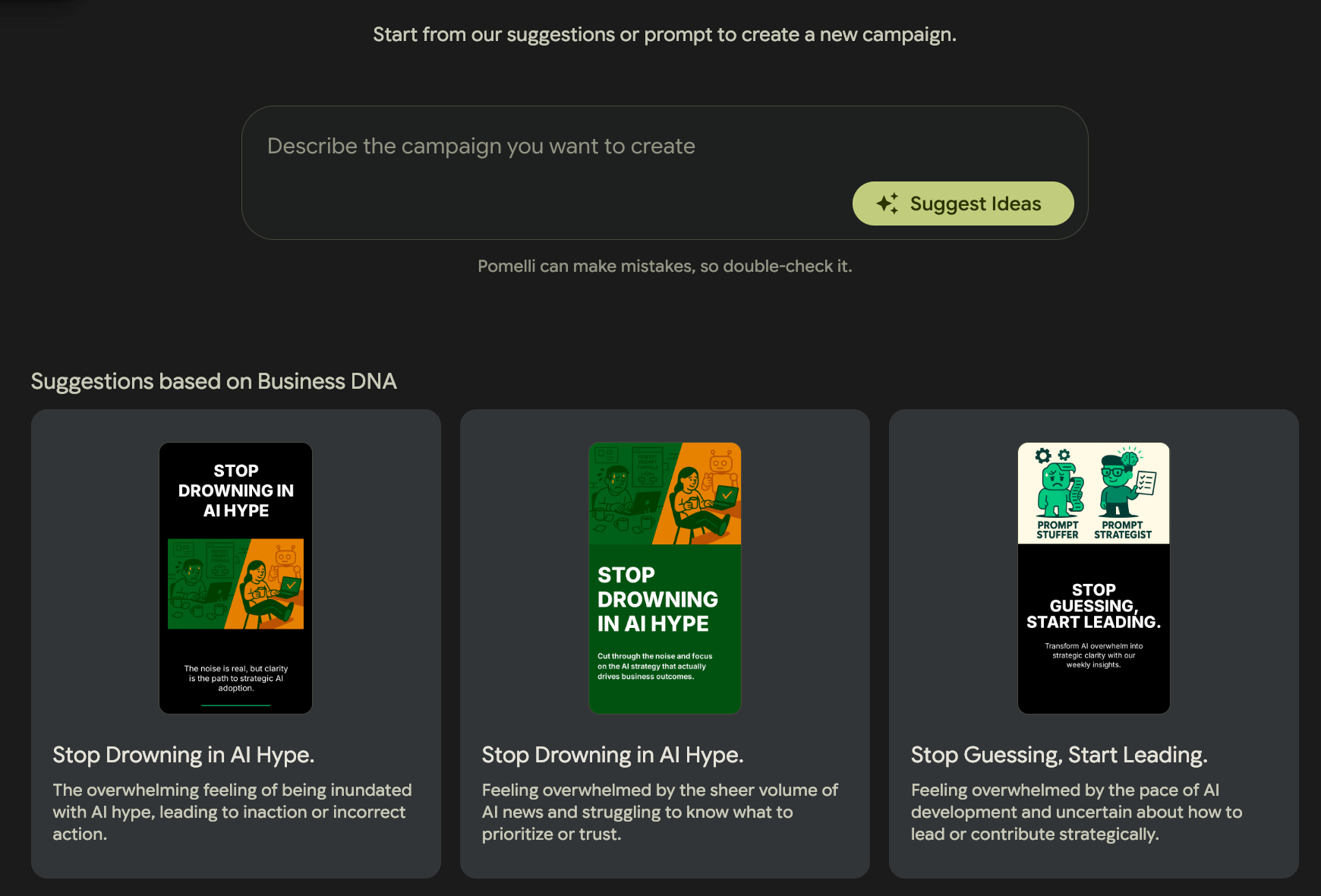
Here's how it works.
You can add your website URL or assets.
It pulls the content and images.
Then it creates visuals with messaging to promote your brand.
You can also guide what it creates with prompts.
I tried it out for a few minutes this week.
It's super cool for small/mid-size businesses.
The signal? Expect to see more tools that turn existing assets into custom visuals.
For now, it's something to play around with if you're interested in marketing.
It takes a few minutes to test and it's fun to see what it spins up.
More advanced versions will come.
But this gives you a sense of how AI could change the marketing process.


